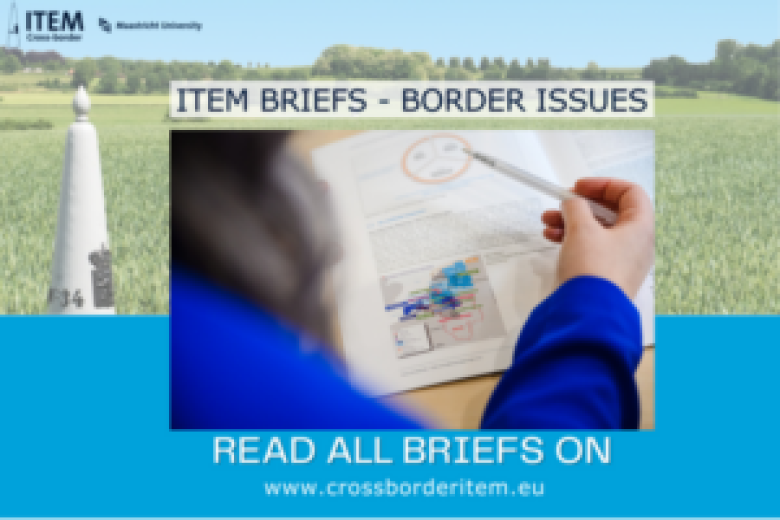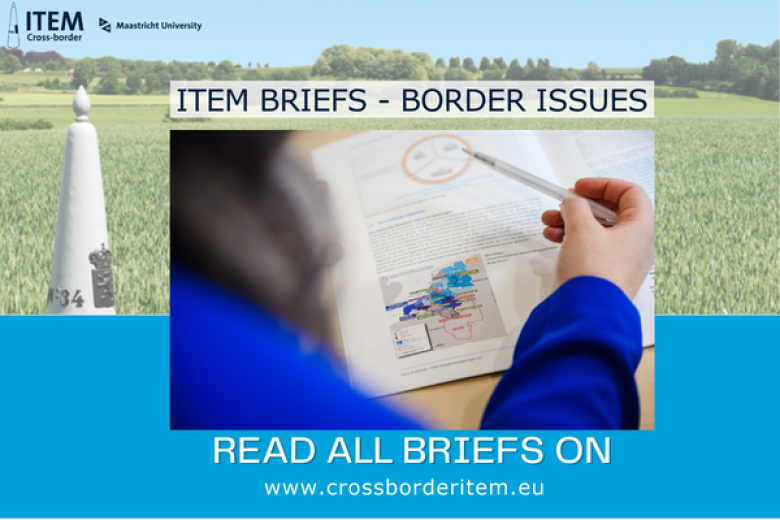Parliamentary elections in the Netherlands: Expectations for border regions and cross-border cooperation
Today, 6 December 2023, the new MPs take office, following the Parliamentary elections on 22 November 2023 On 1 December last, the election results were finalised. The PVV emerged as the biggest party from the ballot box (37 seats), followed by GroenLinks/PvdA (25 seats), the VVD (24 seats) and Nieuw Sociaal Contract (20 seats). Overall, there seems to be no significant difference between border municipalities and the other municipalities: PVV scores highest in almost all Dutch municipalities (e.g. in the North-Eastern region around Enschede, NSC scores higher).
Since last week, Ronald Plasterk has been appointed for exploring a possible cabinet formation. Although the reconnaissance and formation talks are still taking place at the moment, it is clear that the PVV is the pivot, with the VVD, NSC and BBB in its sights. Given the outcome, what are the main aspects for cross-border regions and cooperation in Europe in general?
The parties involved indicate that elements of the PVV programme should be “shelved”. The PVV’s Europe position could be one such “deal breaker”. The PVV’s party programme is among those listed in the ITEM Reflection that are more sceptical about the EU and wish to strengthen country borders: “As a sovereign country, PVV strives for strong bilateral contacts and economic ties with other countries. This intensive cooperation between countries does not require a political union like the EU. The PVV wants a binding referendum on NEXIT.” While the NSC, for example, does not advocate an “ever closer union” and the BBB wants to strengthen subsidiarity in Europe by strengthening the position of Dutch regions, EU membership is not an issue.
With border regions as ‘living labs of European integration’, it is clear that a NEXIT would be particularly damaging for border regions, where day-to-day life partly takes place across the border. A good number of MPs can probably agree with this from their own experience: just under 40 per cent of MPs come from a border province; some 20 per cent live in a border region (municipalities within 25 kilometres of the national border). The ITEM Reflection points to other plans that would not benefit the border region. Think of a work permit, which would make cross-border work more difficult, or the establishment of pushbacks and border controls, which would not improve the living situation at the border and certainly not cooperation with neighbouring countries. From that point of view, it is somewhat surprising that the election results in border municipalities do not differ from the rest of the Netherlands.
“The border region should be top-of-mind,” was the message of the Next ITEM with candidate MPs of last 16 November, similarly in the context of ‘administrative renewal’ or ‘every region counts’. This is ever the case now that the discussion on national borders may be back on the (formation) table. The experience of previous cabinets shows that a minister or state secretary with cross-border cooperation as a coordinating responsibility is good, but not sufficient. In the cabinet formation, a ministerial task for cross-border cooperation with a stronger mandate can be pursued. And as NSC rightly puts it, “Not only the cabinet, but also the Parliament must invest in the relationship with neighbouring countries.” Indeed, the new Parliament also has a role for the border region here. This can already come to fruition on 13 December during the debate on the results and cabinet formation.
P.J.T. Mertens
Pim Mertens is Scientific Coordinator at Expertisecentrum ITEM.

-
Providing information for a mobile citizen – the Single Digital Gateway offers a solution?
Choosing to work or live in another country often does not happen overnight. Obtaining information beforehand is indispensable. To this end, one can rely on numerous websites that provide further insight into conceivable administrative, fiscal and social security law aspects you will be confronted...

-
Cross-border pension in the EU: the procession of Echternach
Our pensionland is in a state of flux; especially when it comes to the regulation of cross-border pensions. On 17 January, the Lower House debated the Future Pensions Act (WTP). It is surprising that in the more than 100 hours of parliamentary debates and many hundreds of pages of parliamentary...

-
Climate summit COP28 – ‘An agreement is only as good as its implementation’ Global warming and its border regions
From 30 November to 12 December 2023, the COP28 climate summit took place in Dubai. It is special because all parties agreed to phase out fossil fuel use, triple global renewable energy generation capacity by 2030 and double energy efficiency. This annual UN climate conference is the world’s largest...
